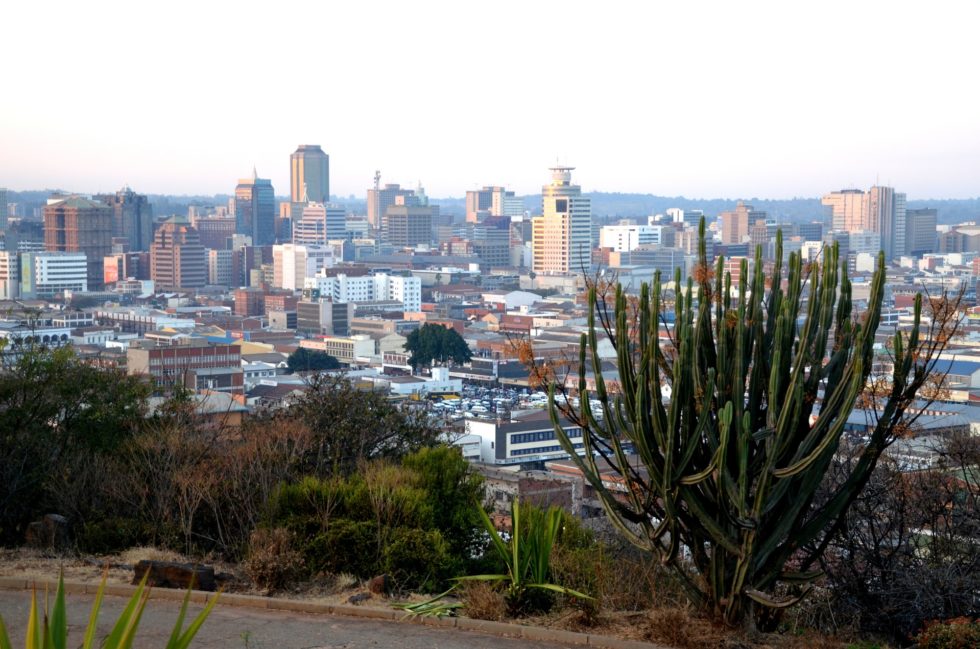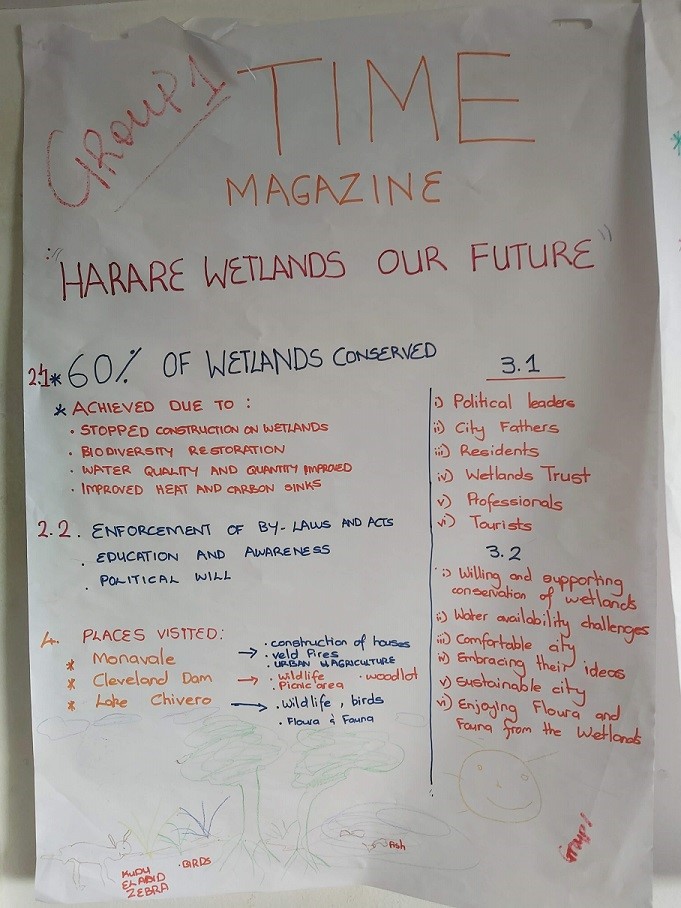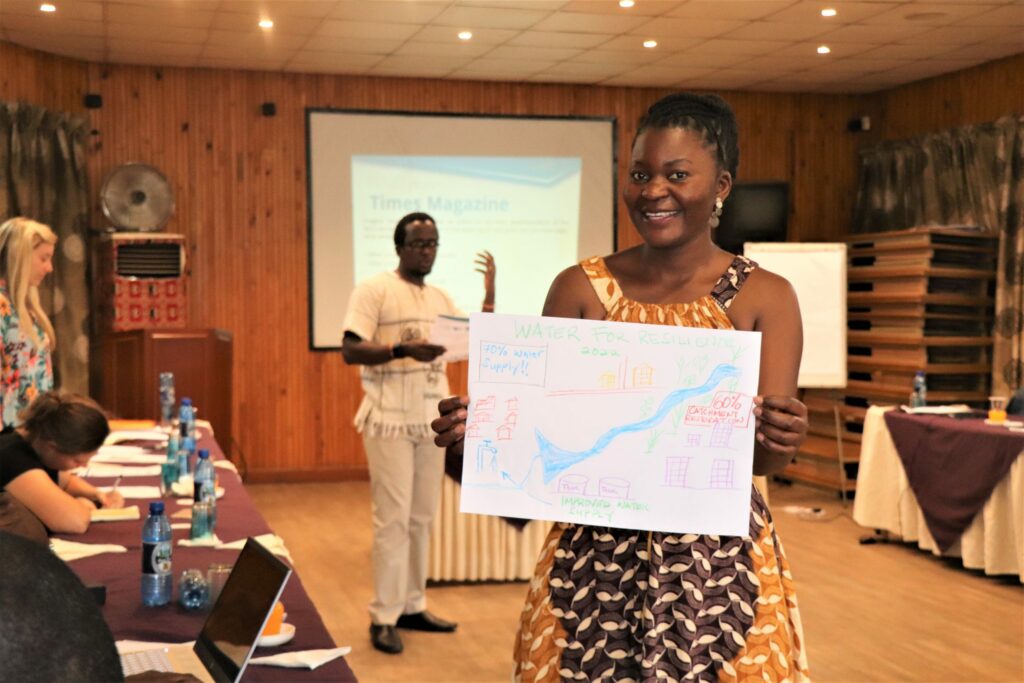12 January 2020
Inspired plans emerge when officials are given the chance to dream up a climate-proofed city
Urgent requests and day-to-day tasks often leave city officials with little time to pause and consider how they want their cities to look in 10 years’ time and how to get there. When a recent workshop granted them the space to do so, the plans for long-term transformation were inspired.



African cities face increasingly serious challenges, with rapidly urbanising environments, increasing population pressures on infrastructure, housing, ecosystems and service delivery, and greater vulnerability to climate impacts. City authorities are required to deal with these ever increasing complexities and uncertainties, and in many instances governance underpins these challenges but is also the potential solutions. City authorities are key in overcoming these challenges by delivering critical local-level actions that meet developmental targets.
Daily, city authorities are confronted with a plethora of immediate, often urgent, problems that need solving; and are very rarely given the opportunity to pause and consider the long-term, cross-sectoral plans and targets for the city. Adding to this, urban governance issues are generally divided amongst different departments and governance levels, each with separate (and often divergent) mandates, and faced with varying constraints on finance and human resources. It is crucial for national social-economic and climate priorities to align with a city’s development needs, but local governments seldom get the chance to explore their own aspirations for local transformation.
Recently, workshops led by ICLEI Africa in Harare (Zimbabwe) and Lilongwe (Malawi), gave national and local government officials licence to pause, reflect, and dream. The workshops provided space to consider the implementation status of national government’s climate change commitments at the local level vis-à-vis the Nationally Determined Contributions (NDCs), detail; explore how to remove the barriers to multi-level engagement needed to achieve the targets detailed in the respective NDCs, and create an enabling environment for collaboration, specifically for climate resilient development in the water sector.
The workshops were held under the auspices of the Improved Municipal Planning for African CiTies (IMPACT) project, funded by the IDRC. The IMPACT project aims to understand how collaboration can be enhanced in these cities to support climate resilient development and better implement the NDCs. The thematic area of the project is water, with both countries considering water to be an important, cross-cutting focus area for resilient development.

Future-visioning sparks creativity and fuels aspirations
The participatory visioning exercises recently conducted in Harare and Lilongwe provided officials the rare opportunity to put their immediate responsibilities on hold and envision a future for their cities where the water sector is climate-proofed and resilient. Their task was simple:
Imagine it is 2030. Journalists from Time Magazine arrive in your city to write an article on city-level implementation of the NDCs for resilient development of the water sector. What would the cover page look like, i.e. what is the headline, main storyline and achievements, which areas were visited, who was interviewed and what did they say, and what visuals were captured?
As developing countries, both Zimbabwe and Malawi’s NDCs recognise that global climate change commitments must be considered within the context of both national and local socio-economic challenges, such as poverty, unemployment, and food, water and energy insecurity. The imagined, on-the-ground futures had to include cross-sectoral collaboration efforts that specifically meet NDC objectives for water security.
Where does it come from?
To encourage collaboration between sectors and levels of government, groups were made up of both national and local government officials from different sectors. Each voice in the group had a chance to be heard as they worked together on their future vision for a transformed water sector.
The excitement in the room was palpable, and when each group presented their Time magazine cover, it was easy to understand why: every single vision of the future was cross-cutting, examining and solving issues in a way that had co-benefits across the system. From conserving wetlands with a focus on biodiversity restoration and water quality improvements (with additional benefits for tourism and agriculture), to achieving universal access to affordable and clean water through a bottom-up approach that engaged both citizens and the private sector, the angle of each vision differed. Participants had taken their own expertise and applied it in a cohesive way that considered equity, funding needs and collaboration.

The ICLEI Africa / IMPACT project team would like to thank the project funders, IDRC, for the opportunity to engage with city and national level officials in the respective project cities, and our partners, Chinhoyi University of Technology, the University of Malawi, and the African Climate and Development Initiative (ACDI) at the University of Cape Town for their ongoing support for the IMPACT Project. In particular, we would like to thank Ruth Johnson (facilitator) and ForReal (www.forreal.org.za) for first introducing the Time Magazine Visioning Exercise at a World Universities Network (WUN) workshop, hosted by the ACDI.


